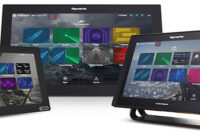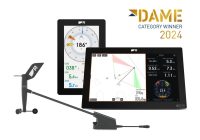
From submerged debris to compromised water quality, there can be numerous safety hazards for boaters following a flood. Two boating safety experts share some key risk mitigation advice to help you stay safe.
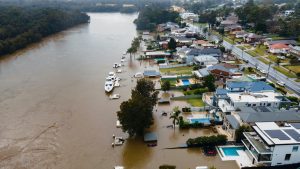
Adam Smith, President of the Boating Industry Association and Owner of Australian Boating College Sydney.
Unless you absolutely have no other choice, simply avoid flooded waters. Like driving your car on a flooded road, it’s not worth the risk. The unseen hazards are as dangerous or more so than those you can see. After storms or flooding, enclosed waters (harbours and rivers) will contain unknown risks and hazards for some time. Debris in the water and on the seabed will be new or moved, navigation aids may have disappeared or moved, and the water itself will be murky, so you can’t see anything below the surface where you may normally have been able to.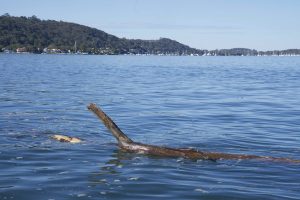
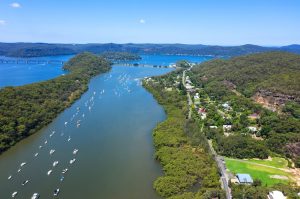
Visit abcboating.net.au and bia.org.au
Glenn Sullivan, Monaro Region Zone Duty Operations Manager with Marine Rescue NSW.
Although flood waters are primarily thought of in the enclosed waters environment, heeding the following advice when travelling in any waters inshore and off, is vitally important. Have all onboard keep a proper lookout and maintain a safe speed. Large objects ranging from logs to shipping containers and everything in between can be washed through the river systems and out into open waters. If anything is seen, please report it to the local volunteer marine rescue (VMR) so that a safety message can be broadcast so as other water users do not collide with these objects. If an object is struck, assess everyone’s welfare and any damage caused to the vessel. If the vessel including hull or propulsion equipment is damaged, do not hesitate to call the local VMR via your Marine Band radio, call Triple Zero (000) by phone or even use your EPIRB and flares as required.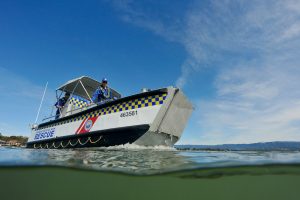
Visit marinerescuensw.com.au
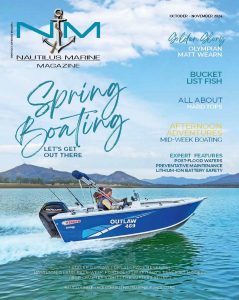
The October-November issue of Nautilus Marine Magazine is out now.
About Nautilus Marine Magazine
Nautilus Marine Magazine offers readers 100 pages of content to support their on-water lifestyle. Published every two months across Australia and New Zealand for an audience of Nautilus Marine Insurance customers, members of the marine industry and boating enthusiasts, our magazine features expert features, boat profiles, interviews with boating and sailing identities, fishing adventures, travel destinations, boating lifestyle content and dining. No matter what side of the boating spectrum you sit on, power or sail, Nautilus Marine Magazine is a must read.
About Nautilus Marine Insurance
Nautilus Marine Insurance is a leading provider of insurance solutions for recreational vessels and marine business assets across Australia and New Zealand, protecting over 45,000 vessel owners and marine industry members. For over 19 years, Nautilus Marine Insurance has been a specialist supplier of insurance for pleasure craft and marine business assets and liability insurance. Nautilus Marine Insurance provide coverage for pleasure craft of all sizes, ranging from sailing dinghies and personal watercraft (PWCs) through to yachts, runabouts, and luxury motor yachts as well as commercially operated boats and marine businesses. Through its Industry Lines division, Nautilus Marine Insurance also specialises in providing tailored business insurance for clients servicing the recreational boating market including marina operators and owners, yacht clubs and boat clubs, boat dealerships and most marine trades including boat repairers and boat service providers. Thousands of professional insurance advisers and brokers choose to work with Nautilus Marine Insurance. These insurance experts trust the breadth of Nautilus Marine’s products and claims support to recommend our products and services to their clients. Nautilus Marine Insurance has a passionate team of over 90 staff and offices across Australia and New Zealand. Nautilus Marine Insurance is a business name of NM Insurance Pty Ltd, ABN 34 100 633 038, AFSL 227186. It has binding authority from Zurich Australian Insurance Limited (ZAIL) which allows it to enter into and arrange policies of insurance and handle and settle claims made under them. Visit nautilusinsurance.com.au to find out more.






